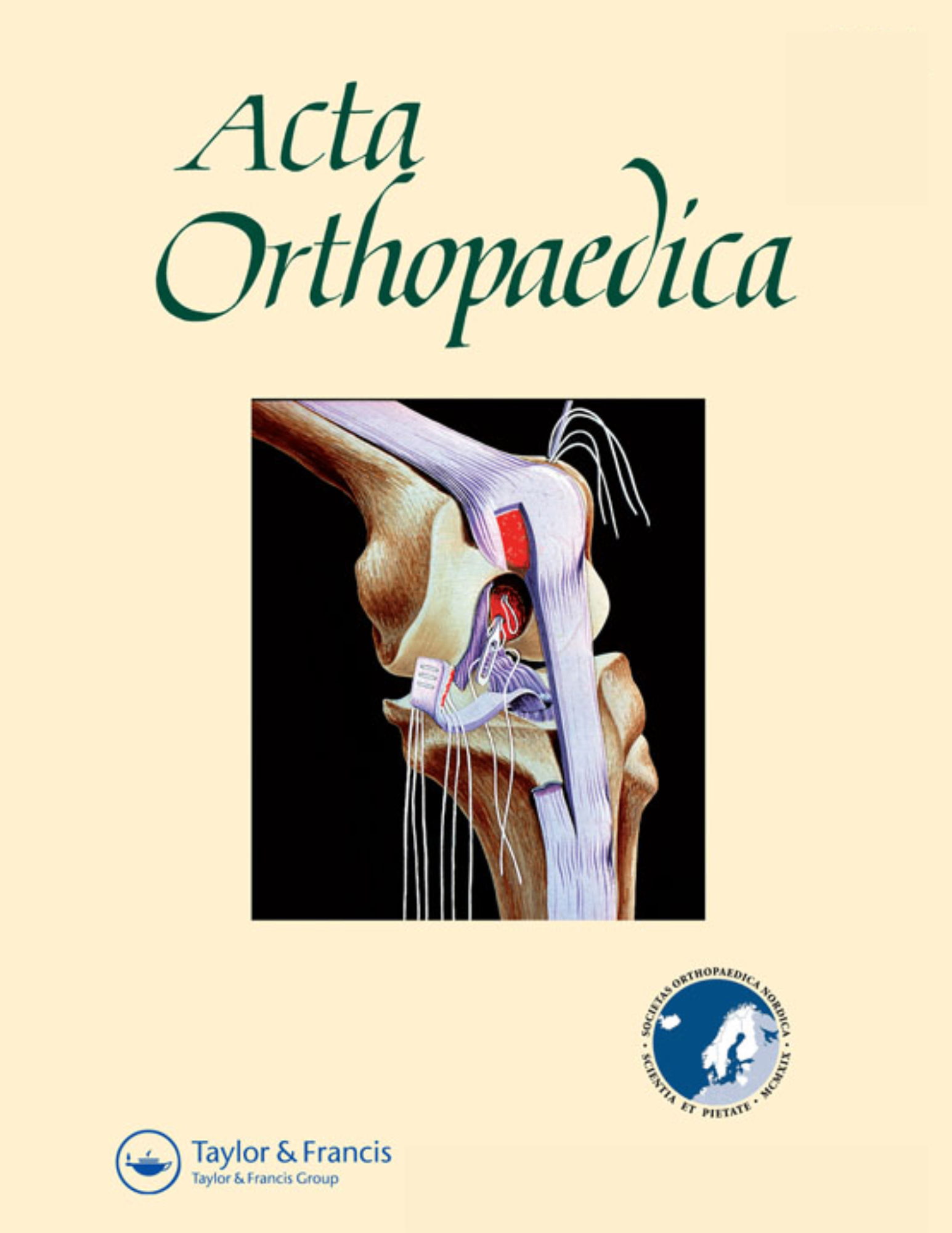
Local peroperative treatment of bisphosphonate improves knee prosthesis fixation

Local peroperative treatment of bisphosphonate improves knee prosthesis fixation
Local peroperative treatment with a bisphosphonate improves the fixation of total knee prostheses: A randomized, double-blind radiostereometric study of 50 patients
Acta Orthop. 2007 Dec;78(6):795-9Synopsis
50 patients scheduled to receive a cemented knee prosthesis were randomized to receive either a localized treatment of ibandronate (a type of bisphosphonate) or a saline solution placebo during surgery. The primary outcome was maximal total point motion (MTPM) measured by radiostereometry (RSA). Results indicated that ibandronate appears to be a safe and viable treatment in reducing risk of prosthesis migration.
Was the allocation sequence adequately generated?
Was allocation adequately concealed?
Blinding Treatment Providers: Was knowledge of the allocated interventions adequately prevented?
Blinding Outcome Assessors: Was knowledge of the allocated interventions adequately prevented?
Blinding Patients: Was knowledge of the allocated interventions adequately prevented?
Was loss to follow-up (missing outcome data) infrequent?
Are reports of the study free of suggestion of selective outcome reporting?
Were outcomes objective, patient-important and assessed in a manner to limit bias (ie. duplicate assessors, Independent assessors)?
Was the sample size sufficiently large to assure a balance of prognosis and sufficiently large number of outcome events?
Was investigator expertise/experience with both treatment and control techniques likely the same (ie.were criteria for surgeon participation/expertise provided)?
Yes = 1
Uncertain = 0.5
Not Relevant = 0
No = 0
The Reporting Criteria Assessment evaluates the transparency with which authors report the methodological and trial characteristics of the trial within the publication. The assessment is divided into five categories which are presented below.
4/4
Randomization
4/4
Outcome Measurements
2/4
Inclusion / Exclusion
4/4
Therapy Description
3/4
Statistics
Detsky AS, Naylor CD, O'Rourke K, McGeer AJ, L'Abbé KA. J Clin Epidemiol. 1992;45:255-65
The Fragility Index is a tool that aids in the interpretation of significant findings, providing a measure of strength for a result. The Fragility Index represents the number of consecutive events that need to be added to a dichotomous outcome to make the finding no longer significant. A small number represents a weaker finding and a large number represents a stronger finding.
Why was this study needed now?
An optimal balance of bone resorption and formation is required for better early fixation in knee prostheses. Bisphosphonates impair bone resorption, leading to a more positive balance for early implant fixation. A previous study by the same authors have indicated the effectiveness of a bisphosphonate (an oral treatment of clodronate) in reducing migration rates of knee prostheses.This study examines the outcomes in total knee prosthesis fixation when ibandronate is locally administered peroperatively during surgery.
What was the principal research question?
What are the outcomes in maximal total point motion (MTPM) at 24 months when ibandronate is locally administered peroperatively in patients undergoing total knee prosthesis surgery?
What were the important findings?
- The ibandronate group had reduced migration and had a reduction rate of 0.45 to 0.32 mm (95%CI for reduction: 0.04-0.21 mm) at 6 months. (p=0.006)
- Migration along the y-axis was influenced significantly in patients who received Ibandoronate prior to surgery (p=0.009)
- There was a reduction in migration from the postoperative examination of 0.47 to 0.36 mm (95% CI for reduction: 0.02-0.20 mm) at 12 months.
- There was a reduction in migration from the postoperative examination of 0.47 to 0.40 mm (95%CI: -0.01-0.16 mm) at 24 months.
What should I remember most?
The locally administered ibandronate treatment appears to be a safe and effective treatment in reducing the risk of prosthesis migration during knee prosthesis fixation surgery.
How will this affect the care of my patients?
Patients may find improved stability and reduced migration when ibandronate is locally administered peroperatively during knee prosthesis fixation surgery. Further research on this study with a larger sample size is needed to verify the results presented in this study.
Learn about our AI Driven
High Impact Search Feature
Our AI driven High Impact metric calculates the impact an article will have by considering both the publishing journal and the content of the article itself. Built using the latest advances in natural language processing, OE High Impact predicts an article’s future number of citations better than impact factor alone.
Continue



 LOGIN
LOGIN

Join the Conversation
Please Login or Join to leave comments.